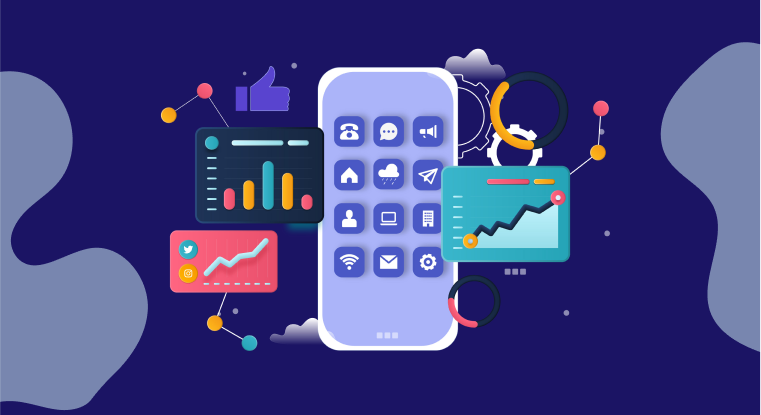In today’s digital age, understanding the pulse of your audience is paramount. Online social listening, also known as social media monitoring, empowers individuals and businesses to do just that. By systematically tracking online conversations, sentiments, and trends, this practice provides invaluable insights that can shape marketing strategies, product development, and customer service.
What is Online Social Listening?

Online social listening involves monitoring digital conversations to understand what customers are saying about a brand, industry, or topic. It goes beyond counting likes and shares, delving into the nuances of sentiment, emotions, and intent expressed by users online.
Why Does Online Social Listening Matter?
1. Understanding Consumer Sentiment
Online social listening allows businesses to gauge customer emotions and opinions, providing a direct line to their preferences and concerns.
2. Enhancing Brand Reputation
By promptly addressing negative feedback or concerns voiced online, businesses can safeguard their reputation and build trust with their audience.
Online Social Listening Tools
1. Keyword Monitoring
Tracking specific keywords and phrases helps in understanding what topics are trending and what consumers are interested in.
2. Sentiment Analysis
Analyzing whether conversations are positive, negative, or neutral provides valuable context, enabling businesses to tailor their responses accordingly.
3. Competitor Analysis
By monitoring competitors’ online mentions, businesses can identify gaps in the market and capitalize on unexplored opportunities.
How Businesses Can Leverage Online Social Listening
1. Product Improvement
By listening to customer feedback, businesses can identify areas of improvement, leading to the development of products and services that better meet consumer needs.
2. Customer Service Enhancement
Swift responses to customer queries or complaints on social media platforms can enhance customer satisfaction and loyalty.
3. Identifying Market Trends
Analyzing online conversations helps in identifying emerging trends, enabling businesses to stay ahead of the competition.
Social Media Listening in the Age of Social Media
1. Monitoring Social Media Platforms
From Facebook and Twitter to Instagram and LinkedIn, social media monitoring tools cover a wide array of platforms.
2. Utilizing Hashtags and Trends
Tracking popular hashtags and trends helps businesses participate in relevant conversations, increasing their online visibility.
Challenges and Solutions
1. Filtering Noise from Data
With the vast amount of online data, businesses face the challenge of filtering out irrelevant information. Advanced algorithms and AI-driven tools assist in this process.
2. Privacy Concerns and Ethical Considerations
Respecting user privacy and adhering to ethical guidelines are paramount. Responsible social listening involves anonymizing data and obtaining user consent where necessary.
Future Trends
1. AI and Machine Learning Integration
The integration of artificial intelligence and machine learning algorithms enhances the accuracy of sentiment analysis, making online social listening more effective.
2. Predictive Analysis
Anticipating consumer behavior and market trends through predictive analysis enables businesses to proactively respond to changing demands.
Impact of Online Social Listening on SEO
Social listening indirectly impacts SEO by influencing content strategies and keyword choices. Businesses that understand their audience through social listening can create more relevant and engaging content, leading to improved search engine rankings.
Conclusion
Online social listening is not just a tool; it’s a strategic necessity in the modern digital landscape. By actively engaging in online conversations, understanding consumer sentiment, and adapting strategies accordingly, businesses can thrive and remain competitive. If you’re ready to elevate your online presence through social listening, we invite you to request a demo from AIM Technologies. See firsthand how our cutting-edge solutions can transform the way you connect with your audience.
FAQs
Q1: How often should businesses engage in social listening?
- A1: Regular monitoring is essential. Ideally, businesses should engage in social listening daily to stay updated with the latest trends and sentiments.
Q2: Is social listening limited to specific industries?
- A2: No, social listening is versatile and applicable to diverse industries, from healthcare and finance to entertainment and fashion.
Q3: What tools are recommended for effective social listening?
- A3: There are various tools available, such as Brandwatch, AIM Insights, and Hootsuite, catering to different business needs and budgets.
Q4: How can small businesses benefit from social listening?
- A4: Small businesses can use social listening to understand their local audience, improve customer service, and track competitors, enabling informed decision-making.
Q5: Can online social listening help in crisis management?
- A5: Yes, by monitoring online conversations during a crisis, businesses can assess public sentiment, respond promptly, and mitigate reputational damage.



